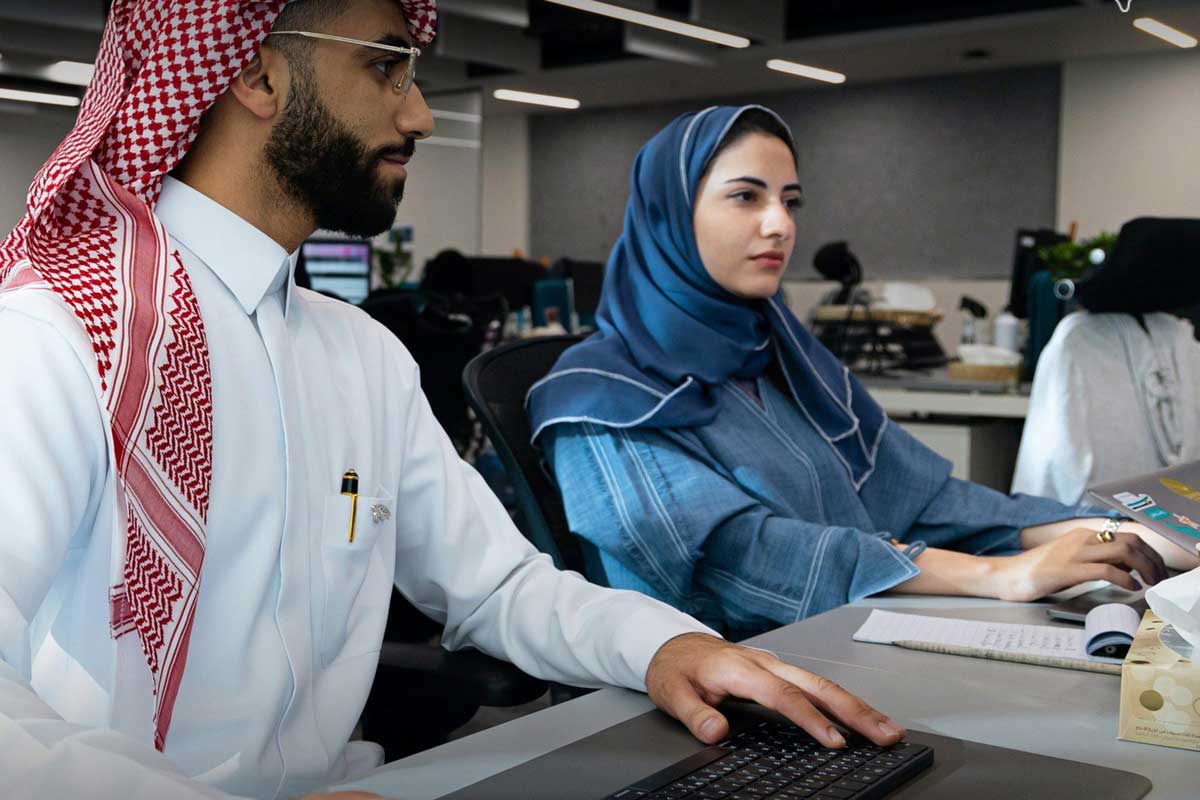In a nation built on oil wealth, Saudi Arabia is betting $320 billion that it can transform itself into a global powerhouse without relying on the very resource that made it rich.
Yet as global headwinds intensify and CEOs worldwide brace for uncertainty, the kingdom’s ambitious target of SAR1.2 trillion in non-oil GDP is testing both its resolve and resources.
The great transformation
“Multiple factors, both global and national, have driven economic diversification in Saudi Arabia. On a global level, diversification aligns with the shift towards renewable energy and sustainability that is necessary to secure our future on the planet. Saudi Arabia has taken a crucial lead in this area,” said Tarek Lotfy, President and Wealth Leader for India Middle East & Africa at Mercer.
The numbers tell a compelling story. Saudi Arabia’s non-oil sector already contributes 50 per cent of the country’s real GDP, marking a milestone in its diversification journey. The International Monetary Fund (IMF) projects the kingdom’s economic growth to reach 4.6 per cent in 2025, positioning it among the world’s fastest-growing major economies.
“The drive from regional countries to diversify their economic portfolio stems from the desire to create a sustainable economy, without a reliance on oil or gas,” said Nazar Musa, Head of KSA & Qatar at Sovereign PPG.
“The Kingdom’s goal of achieving SAR1.2 trillion non-oil GDP is ambitious considering that by next year, a significant portion of GDP would be derived from non-oil activity.”
The transformation is already showing results.
“In 2022, the Kingdom became the fastest-growing major economy in the world, with a remarkable 8.7 per cent GDP growth rate,” said Lotfy.
The IMF forecasts continued momentum, with non-oil growth projected at 3.5 per cent in 2024, accelerating to 4.7 per cent in 2025.
Key numbers:
- Non-oil GDP contribution in 2023: 50% of real GDP
- PIF assets under management by mid-2024: $925 billion
- Female employment grew from 20% in 2018 to 35% in 2024
- Jobs created by PIF in 2023: 730,000+
- International investments by PIF: $156 billion in 2023
The investment engine
“On a national level, diversification has created an unprecedented opportunity to fully realise the Kingdom’s economic potential by promoting sectors such as tourism, technology, renewable energy, and manufacturing through the Vision 2030 strategy,” said Lotfy.
“Reforms in these areas have attracted foreign investment and stimulated private sector growth, with government support enabling the creation of new industries and startups, contributing to overall economic expansion.”
At the heart of this transformation sits the Public Investment Fund (PIF), whose assets under management reached SAR 2.871 trillion ($925 billion) by mid-2024. The fund’s performance speaks volumes: an average total shareholder return of 8.7 per cent per year since launching its Vision Realisation Programme, with over 730,000 direct and indirect jobs created by the end of 2023.
“Saudi Arabia’s Public Investment Fund has proved pivotal in facilitating and navigating the Kingdom’s economic transformation in recent years,” Musa said.

“The initiatives and programmes introduced by the PIF, such as the Vision 2030 strategy, have largely directed the reshaping of the economic portfolio.”
The fund’s international reach is equally impressive, investing SAR 586 billion ($156 billion) internationally in 2023 alone, focusing on sectors from technology to renewable energy. Recent wins, including bids for FIFA World Cup 2034 and World Expo 2030, signal the kingdom’s growing soft power.
Saudi Arabia’s talent push
A recent Oliver Wyman Forum report reveals that today’s business environment is particularly mixed.
Seif Sammakieh, a partner at Oliver Wyman’s Government and Public Institutions Practice and head of the Riyadh office, pointed to the talent gap as a critical challenge.
“Upskilling talent is a top priority, with 31 per cent of CEOs investing in filling critical skills gaps and reskilling their workforce.”
The transformation has already yielded surprising results in daily life. In Mercer’s 2024 Cost of Living City Ranking, Riyadh ranked as only the 90th most expensive city for international employees, whilst Jeddah placed 97th – suggesting the Kingdom’s growing appeal as a destination for global talent.
Perhaps most striking is the rapid transformation of its workforce. Female employment has surged from 20 per cent in 2018 to approximately 35 per cent today, marking a social revolution alongside the economic one. Yet challenges remain.
“As the kingdom delves further into its economic diversification efforts, the considerations for its citizens and culture are an integral part of what needs to be addressed,” Musa explained.

The role of artificial intelligence in this transformation cannot be understated. The Saudi Data and Artificial Intelligence Authority (SDAIA) has launched significant initiatives, including the National Data Bank and the Estishraf platform.
Abdulelah AlBarrak, a partner at Oliver Wyman, noted that “more than 40 per cent of CEOs cited not moving fast enough on AI and being left behind by competitors as one of their top AI-related risks.”
“The success of these efforts depends on aligning education and training programs with the demands of the job market, supporting female workforce participation, and fostering entrepreneurship among young Saudi nationals,” Lotfy noted.
“With increased economic stability and diversification, the government is also encouraging entrepreneurship, with a focus on young people.”
As 2025 approaches, the Kingdom’s economic transformation represents more than just national ambition – it’s a test case for how traditional economies can reinvent themselves in the 21st century.
“Saudi Arabia’s success in developing economic ecosystems is not just about diversifying its economy; it is about creating a sustainable and innovative future,” Lotfy said.










